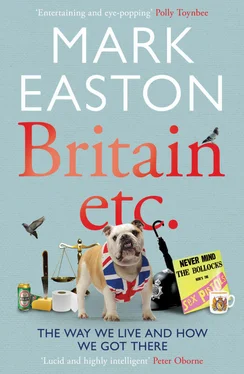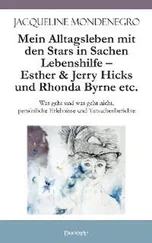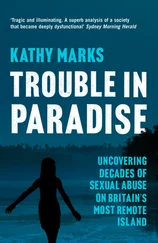Within hours of some revelation one can guarantee there will be calls for urgent structural and systemic reform. Woe betide anyone who suggests a sense of perspective or a time for reflection are needed: such calls are likely to be condemned as complacency or callousness. Indeed, in the febrile atmosphere that accompanies public outrage, the voice of calm can also end up being drowned in the duck pond by the angry mob.
Policy shaped by panic almost always turns out to be a bad idea. Systems hurriedly assembled as a response to headlines can prove to be blunt and inefficient tools, unnecessary or counterproductive. Many institutions are hampered by the bureaucratic legacy of some long-forgotten scandal that demanded something be done. Britain’s Vetting and Barring Scheme is a child of just such a moral panic: a textbook case of how media storm and political expediency combine to demand reform that later appears disproportionate or simply daft.
The saga began in the summer of 2002. That August, like every August, news desks were searching around for stories to fill their papers and bulletins. With Parliament on holiday and little else happening, an appalling child abduction story from Cambridgeshire dominated the front pages. The Soham murders became a national talking point and when it emerged that the killer, school caretaker Ian Huntley, had previously been investigated for sexual offences, the question of responsibility extended from the criminal to the political sphere. Would any blame for the deaths of Holly Wells and Jessica Chapman be pinned on the government? Political opponents were circling. Ministers had to respond, and respond quickly.
The Home Secretary David Blunkett bought time in the traditional manner: he announced an inquiry. The man he chose to lead it was Sir Michael Bichard, a Whitehall mandarin whose crisis management skills had impressed Mr Blunkett as Education Secretary five years earlier. At that time, according to press reports, details of Mr Blunkett’s complicated love life were threatening to spill out into the public arena and Sir Michael had been instrumental in ensuring tempers were calmed and details hushed.
Mr Blunkett hoped that the Bichard inquiry into Soham would both satisfy the demand that lessons must be learned and help shift any blame away from the department. Sir Michael delivered. He severely criticised the chief constable of Humberside, David Westwood, for not keeping records of child abuse allegations concerning Ian Huntley, and demanded the officer take personal responsibility for ‘very serious failings’. The scandal had its fall guy and, despite support from his local police authority, David Blunkett used new executive powers to order Mr Westwood’s suspension. The chief constable subsequently took early retirement.
Sir Michael’s report, though, went much further, recommending the creation of a huge vetting system requiring those who wish to work with children or vulnerable adults to be registered. The government had little option but to accept the idea — rejecting it would have left ministers potentially open to blame for every case of child abuse thereafter. Lawyers and legislators spent years working out how this new register might work, eventually announcing a system that was likely to see one in four of all adults being vetted by the state. An attempt to ensure an error could never happen again had resulted in the development of a giant, expensive and intrusive bureaucracy that many argued would actually damage the relationship between adults and young people.
Within weeks of taking office in 2010, the new Conservative Home Secretary Theresa May announced that the registration scheme would be scrapped, the vetting process scaled back and ‘common sense’ would be used to protect children and vulnerable adults. There was barely a murmur of opposition.
Public life is, of course, riddled with misjudgement and failure. It is quite right that mistakes are identified and, where necessary, acted upon to reduce future harm. Health and safety systems backed by inspection regimes have undoubtedly made our world less hazardous. But the harsh climate of Britain’s public domain has changed our relationship with error. The consequences can be buck-passing, spin, insincerity, waste and cynicism. Our aversion to risk poses risks of its own.
There’s an old saying that one should never discuss politics or religion in polite company. These are subjects regarded as simply too dangerous to bring up over dinner; passions are almost bound to be unleashed, with the distinct possibility of raised voices, broken crockery and severed friendships. I would, perhaps, add a third category, a subject that mixes the first two in a most combustible fashion: family.
Discussions about family quickly get personal because, well, it is personal. For better or worse, we all have a family and tend to regard ourselves as something of an expert on the topic. From often painful experience, we are convinced we know what works and what does not: we remember bitter Uncle Frank who ended up living alone; mad cousin Dorothy who was pushed into a most unsuitable marriage; and then there was sad Vera who, frankly, tarnished the family name in a manner best forgotten.
Every family has its cautionary tales, parables that reinforce our moral values and shape our political views. The family is seen as the building block of society, its composition and structure essential factors in preventing the collapse of our very way of life. It is a subject so contentious that, for a moment, I find myself questioning the wisdom of even continuing with this chapter. But I don’t have enough to say about flamingos or fezzes so… here goes with ‘F is for Family’.
There is a paradox about our attitudes to family life in Britain. According to a report by the Conservative Party’s policy advisors in 2007, ‘peculiarly high levels of family breakdown found in Britain are at the heart of the social breakdown which is devastating our most deprived communities and fracturing British society in general.’ It is a view that enjoys widespread public agreement. Yet, when one asks people about their own families, a rather different picture emerges.
A few years ago I helped commission a survey for the BBC on people’s experience of British family life, choosing questions that had been posed previously to see how attitudes had changed. In 1964, pollsters had asked whether people were optimistic about the future facing their family. It was the swinging sixties, we’d apparently never had it so good, and Britain was a nation excited about the promise held by the white heat of technology. Just over half of respondents (52 per cent) were positive about their family’s prospects. After four decades of what traditionalists describe as ‘continuous decline’ in family stability, how confident would Britain appear when we asked the same question again? The answer was unexpected: the proportion of people who were upbeat about their family had risen markedly — from half to three quarters (76 per cent) of respondents.
There were to be more surprises in our survey. In 1951, social scientists asked people whether their parents had done the best for them when growing up: nine out of ten (90 per cent) agreed their mother had; eight out often (80 per cent) said their father had done his bit. More than half a century of concerns over parenting later and the figures in our BBC poll showed that appreciation levels had gone up: mums scored 94 per cent and dads 86 per cent.
Are twenty-first-century men behaving badly — spending too much time down the pub with the lads? Back in 1957 one in five married women reported that their husband didn’t spend enough of his spare time with the family. Fifty years of family disintegration afterwards and the figure had fallen to one in twelve.
Читать дальше












